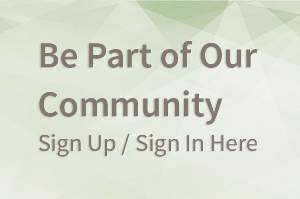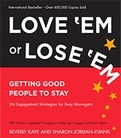BK Blog Post
Five Examples of Companies That Emphasize Speaking Freely Among Their Employees
 Posted by
Jeevan Sivasubramaniam,
Managing Director, Editorial,
Berrett-Koehler Publishers Inc.
Posted by
Jeevan Sivasubramaniam,
Managing Director, Editorial,
Berrett-Koehler Publishers Inc.
In Doug Crandall and Matt Kincaid's latest book, the authors emphasize the importance of creating a culture where employees can speak freely and address issues without fear of reprisal or concerns about negative perception. The best companies and leaders don't just encourage speaking freely, they also benefit and profit from the practice. Here are just five examples of companies, leaders, and individuals that have done just that:
1. Annually, food retailer Supervalu has approximately forty or so mid-level managers break up into four teams to discuss strategic initiatives suggested by upper management in the different business units. These managers discuss issues outside their own areas of expertise and often challenge initiatives from higher-ups--and doing so allows them to foster their own learning and growth leading to valuable leadership development at the same time. The results have been amazing for the company with greater understanding and communications at all levels and between all departments.
2. David Moss joined video game developer Projet Créatif with many ideas. Despite the company's policy that employees could only submit ideas after at least one year of employment, Moss put together a creative team to start designing Ravenmark, a mythological adventure game, and submitted it to the company. The company decided to set aside its 1-year policy and Moss and his team were given time and funds to develop the game which has now grown into a profitable franchise.
3. Urban Bianchi, a supervisor in quality control at Parker Hannifin Corporation, became known as the "undisputed King of the suggestion box" by the Los Angeles Times for proposing more than 800 cost cutting ideas to management. "His unending stream of written suggestions, often accompanied by detailed diagrams, have been known to drive company engineers batty. He has been called a nit-picker," states the article. However, he has also been called a true gem by company leaders who have rewarded him with over $17,000 worth of merchandise for all his efforts.
4. The popular TV show Undercover Boss is one of the best examples of free and open communications and the benefits it reaps for both employees and leaders. In each episode, a company CEO joins frontline workers of his or her company disguised as a new hire. Because they assume the boss is just another frontline employee, the other employees freely raise issues and problems candidly with the "new hire." Time and again, the program has showed how bosses and leaders are often so removed from their employees that they miss out on great ideas as well as areas for improvement because of a lack of open communications.
5. Berrett-Koehler publishers is itself a fine example where everyone is encouraged to speak freely and to actively debate for and against the books we will work on. When books are discussed at the Publication board, everyone is free to question the sponsoring editor (who is also--at times--the founder and CEO) as well as critique the project. Everyone--regardless of whether you are a new entry-level hire of the CEO himself--has an equal vote. On more than one occasion, the CEO or a senior editorial director has found that despite their passion for a project, the staff can stop a project from happening. While this may seem at times like employee tyranny, it gives everyone a voice and also ensures support from almost everyone for an approved project--which in term ensures better accountability and commitment.






